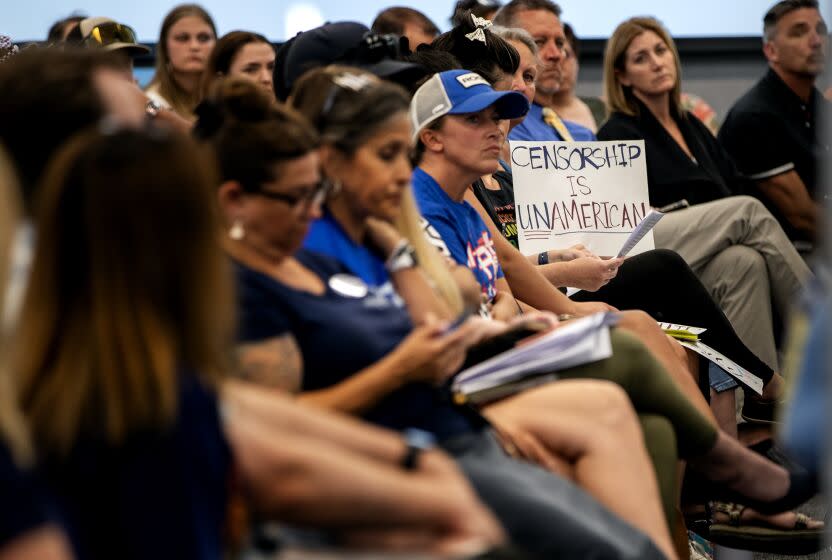Public Counsel sues Temecula school district over its ban of critical race theory

The public interest law firm Public Counsel is suing the Temecula Valley Unified School District over its ban on critical race theory and other restrictions on teaching about racism, alleging the policy violates the California Constitution, the organization announced Wednesday.
The action will take the battle over the classroom instruction about racism to the state civil courts. If the suit overturns the ban, it could have a broad effect in California, where a small number of districts, including Placentia-Yorba Linda Unified, have passed similar bans or restricted instruction on race.
At issue is a resolution passed by the Temecula school board on Dec. 13, 2022, part of a wave of similar actions across the country. The resolution states that "Critical Race Theory assigns generational guilt and racial guilt for conduct and policies that are long in the past" and suggests that such teaching is unconstitutional because it "violates the fundamental principle of equal protection under the law."
"Critical Race Theory is rejected and will not constitute the basis for any instruction," the board resolution states, citing the district's authority to determine local curriculum.
In the suit, the ACLU alleges that the district deprives students "of the opportunity to engage in factual investigation, freely discuss ideas and develop critical thinking and reasoning skills." The anti-CRT resolution harms all schoolchildren, the suit states, but in particular "injures children of color and LGBTQ children, stigmatizing their identities, histories, and cultures."
Read more: Temecula school board adopts social studies curriculum, avoids fine but faces civil rights inquiry
For these reasons, the resolution violates the California Constitution and statutes, which protect "the right to education and to receive information, the right to due process, and the right to be free from discrimination on the basis of race, sex, and sexual orientation," according to the lawsuit.
District officials were not immediately available to comment.
The Temecula school system has been a flashpoint for controversies over what is taught. Gov. Gavin Newsom threatened to fine the Riverside County district $1.5 million for refusing to adopt textbooks because they mentioned San Francisco County Supervisor Harvey Milk, a gay rights leader who was assassinated. The board then reversed course and said it would go forward with the instructional materials that meet state standards.
The term critical race theory has become a catch-all phrase and a rallying point for critics who want to limit discussions on the history of racism, systemic racism and racism in the current time. Critical race theory was developed at the college and graduate level to examine systemic racism, including in the present day. While the term critical race theory was, until recently, used almost exclusively in higher education, concepts about racism that it embodied have been on the table for discussion in high school social studies classes for years.
The term has become embedded in the nation's ongoing culture wars, with critics embracing an anti-CRT stance as a plank in their activism against what they view as harmful liberal values.
The Temecula resolution defines critical race theory as "a divisive ideology that assigns moral fault to individuals solely on the basis of an individual's race and, therefore, is itself a racist ideology." This definition would be challenged by any scholars in that field.
Read more: Slavery, reparations, racism. No topics are off limits in this Black history AP class
The resolution also banned specific elements of instruction.
Teachers will be unable to engage students in discussions on whether "racism is ordinary, the usual way society does business," the resolution says.
The teaching ban also includes the "doctrine" that "an individual, by virtue of his or her race or sex, is inherently racist and/or sexist, whether consciously or unconsciously" and that "individuals are either a member of the oppressor class or the oppressed class because of race or sex."
Under district policy, there can be limited instruction about critical race theory in social science classes "provided that such instruction plays only a subordinate role in the overall course and provided further that such instruction focuses on the flaws in critical race theory."
Sign up for Essential California, your daily guide to news, views and life in the Golden State.
This story originally appeared in Los Angeles Times.

